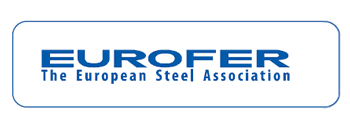Brussels, 20 July 2017 – The European Commission has released details of its proposed anti-dumping measures on Hot Rolled Flat (HRF) steel[i][i]. The proposal for a Minimum Import Price (MIP) sets an unworkable precedent that allows for the continuation of dumping and, as a consequence, promotes overcapacity in exporting countries.

“Dumping, injury and causality have each clearly been demonstrated in this case. How can an MIP that allows the continuation of dumping and price undercutting be chosen just to benefit a minor fraction of user interests? No substantiated Union Interest justification exists here[ii][ii]”, said Axel Eggert, Director General of the European Steel Association (EUROFER).
The five countries included in this anti-dumping case are Brazil, Iran, Russia, Serbia, and Ukraine, though the European Commission proposes to exclude Serbia from measures. HRF is an essential steel product because its polyvalent properties mean that it is widely used both in final production and as a feedstock for the creation of other types of steel, such as cold rolled.
“A single MIP is completely unsuited to HRF, which is a highly diversified product. It comes in over a thousand, very different, grades and types – each with their own costs and prices”, added Mr Eggert. “Moreover, the raw materials that go into HRF fluctuate significantly in cost, leading to extreme price volatility in this steel product segment. A ‘one-size-fits-all’ MIP on HRF simply will not stop dumping”.
The proposed €472 MIP is significantly below the average price level – prices have risen recently, spurred on by much higher raw material prices rather than by margin growth. The MIP distorts competition on the market, as it will define a price benchmark in the HRF market.
“Exporters in the five countries concerned will be able to continue to dump while nevertheless complying with the MIP and undercutting EU producers”, emphasised Mr Eggert. “This puts the viability of the EU’s HRF industry at risk”.
“The Commission has successfully begun to turn the tide of Chinese dumping using ad valorem duties on the similar products – and yet has seemingly decided to leave the door open for other dumpers of steel. The Serbian producer – recently acquired by a state-owned and state-controlled Chinese steel group[iii][iii] – has even been excluded from measures, an incomprehensible choice that invites a Trojan horse into the EU market”, said Mr Eggert.
“Company, country and product-specific ad valorem duties have been the rule until now and are coherent with the Commission’s own Communication on Steel of March 2016 and Communication Robust Trade Policy of October 2016”, concluded Mr Eggert. “The Commission must not voluntarily dilute the effectiveness of the EU’s trade defences. Ad valorem anti-dumping duties, rather than MIPs, should be deployed in this case.”
About the European Steel Association (EUROFER)
EUROFER is located in Brussels and was founded in 1976. It represents the entirety of steel production in the European Union. EUROFER members are steel companies and national steel federations throughout the EU. The major steel companies and national steel federations in Switzerland and Turkey are associate members.
About the European steel industry
The European steel industry is a world leader in innovation and environmental sustainability. It has a turnover of around €170 billion and directly employs 320,000 highly-skilled people, producing on average 170 million tonnes of steel per year. More than 500 steel production sites across 22 EU Member States provide direct and indirect employment to millions more European citizens. Closely integrated with Europe’s manufacturing and construction industries, steel is the backbone for development, growth and employment in Europe.
Steel is the most versatile industrial material in the world. The thousands of different grades and types of steel developed by the industry make the modern world possible. Steel is 100% recyclable and therefore is a fundamental part of the circular economy. As a basic engineering material, steel is also an essential factor in the development and deployment of innovative, CO2-mitigating technologies, improving resource efficiency and fostering sustainable development in Europe.
[i][i] Case number AD635: http://trade.ec.europa.eu/tdi/case_details.cfm?id=2199
[ii][ii] I.e. No reduction in competition, no strengthening of selling power, no risk of shortage of supply, no other EU policy objective jeopardised, no disproportionate cost impact for the overall user community.
[iii][iii] Smederevo steel in Serbia was recently acquired by China’s state-owned Hesteel Group.
